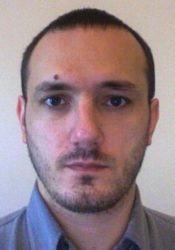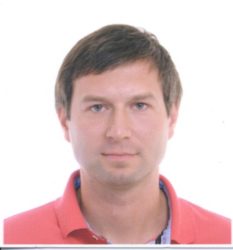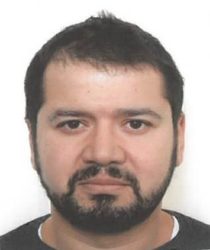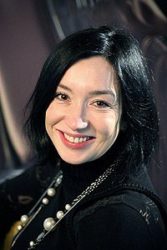

Elena Bogachevskaya
Director & CEO
HoloGrate Ltd, Russia

Topic: Holograms for Currency: State of the Industry and Latest Trends
Speaker: Micaal Sidorov
Research & Business Development
International Hologram Manufacturers Association / Currency News, UK
Diffractive optically variable image devices (DOVIDs) or holograms, as they are commonly known, have been used for the protection of banknotes for nearly three decades now. They were first introduced as an anti-copying feature and few people in the highly conservative banknote industry thought that their use would ever catch on. The subsequent take up was slow – due not just to the banknote community’s traditional caution over an unproven technology coupled with the long gestation period for new banknote features, but also the limited availability of suppliers and application equipment, and the expense.
DOVIDs are now considered to be one of the main and most effective public security features and are used on over 280 denominations worldwide. They have developed into rather complex features produced using different proprietary techniques and are no longer limited to traditional iridescent effects. But they also face some stiff competition from other optically variable devices such as colour shifting threads, micro optics and motion type features as well as magnetic optically variable inks.
This paper will present an overview of the holographic industry in relation to banknote use and the latest trends that are currently driving it. It will also consider the various requirements and challenges this sector is facing, particularly from alternative products and will conclude with a summary of what makes a good DOVID from both issuer and end-user point of view.
The presentation will be delivered on behalf of International Hologram Manufacturers Association (IHMA), a non-profit organisation representing over 100 of the world’s leading hologram manufacturers whose mission is to support, set standard and advance holographic technology for authentication of products and documents and other fields of application.

Topic: From iris surface-relief to volume-phase photopolymer hologram: the evolution of holographic optical elements in security printing
Speaker: Andrey Smirnov
Head of Holographic Laboratory
JSC RPC Krypten, Russia
The report is dedicated to the evolution of hologram security elements used for the security of banknotes, security papers and ID documents. The tendency of application of voluminous photopolymer holograms in security printed products as optically variable security features has been traced using the examples of the world trends. Latest developments of RPC “Krypten” in the area and security solutions using unique visual features forming the effects of movement and volume, have been analyzed in the report.

Topic: Evolutions of the DID™ technology or how to be one step ahead counterfeiters
Speaker: Michel Sochocki
VP Sales CEE & CIS
Surys, France
SURYS is keeping on with the highest level of innovation for the development of its solutions against counterfeiting and other forms of Identity fraud. The presentation will focus on our latest developments in zero order technologies especially for polycarbonate documents, for highly aesthetics designs and strong authentication effects.

Topic: Secure printing technologies of IQDEMY Holding
Speaker: Natalia Stasyuk
Chairman of the Board, Founder
IQDEMY Chemicals, Russia
1. Description, application.
QUANTUM DOTS INK- is an ink with quantum dots, nanocrystals, sized from 2 to 10 nanometers, absorbing energy in the UV spectrum and emitting in visible.
IQDEMY Chemicals developed UV-curable and water-based ink with quantum dots for inkjet printing.
2. Advantages.
For a long time fluorescents and luminophores have been used in secure printing. QUANTUM DOTS INK developed for the fields where durability and increased stability are needed.
• increased durability (photostable, lightness resistant)
• bright fluorescence (higher quantum output)
• monochromatic fluorescence with narrow emission band (half-peak width 20-40 Nm)
3. Boards of application.
Can apply any mark:
• special marks (watermarks, signs)
• marks controlling the security of documents (securities, banknotes, bills of exchange, shares, plastic cards, passports)
• marking with special color codes
4. Microrelief printing.
Microrelief printing is possible to achieve with metallographic or silk-screen printing.
For silk-screen printing the limiting factor is resolution, for metallographic – the height of relief.
Modern digital inkjet printers, developed in our company allow to print microrelief elements with the thickness of the line less than 0,1mm and the height of relief 0,5mm.
Digital inkjet relief printing copies the variety of secure marks of metallographic printing, and in a number of cases add it.